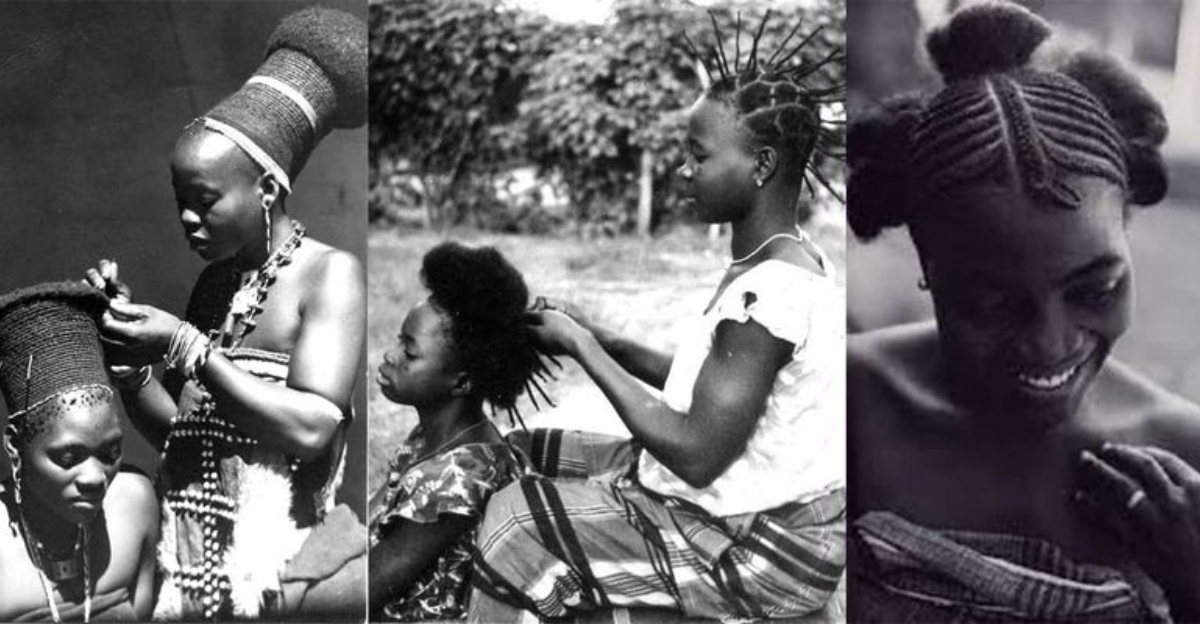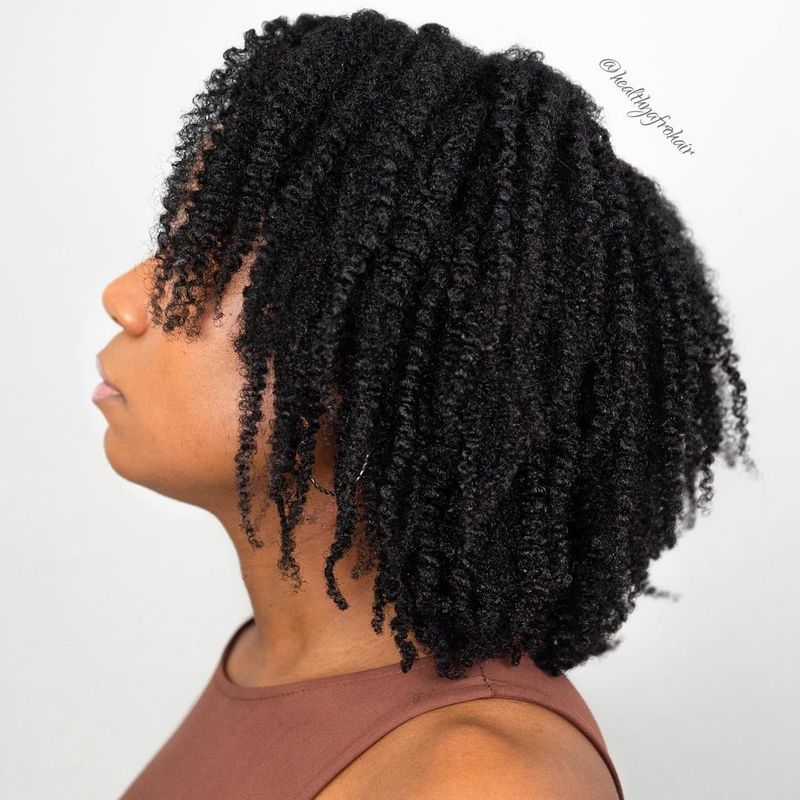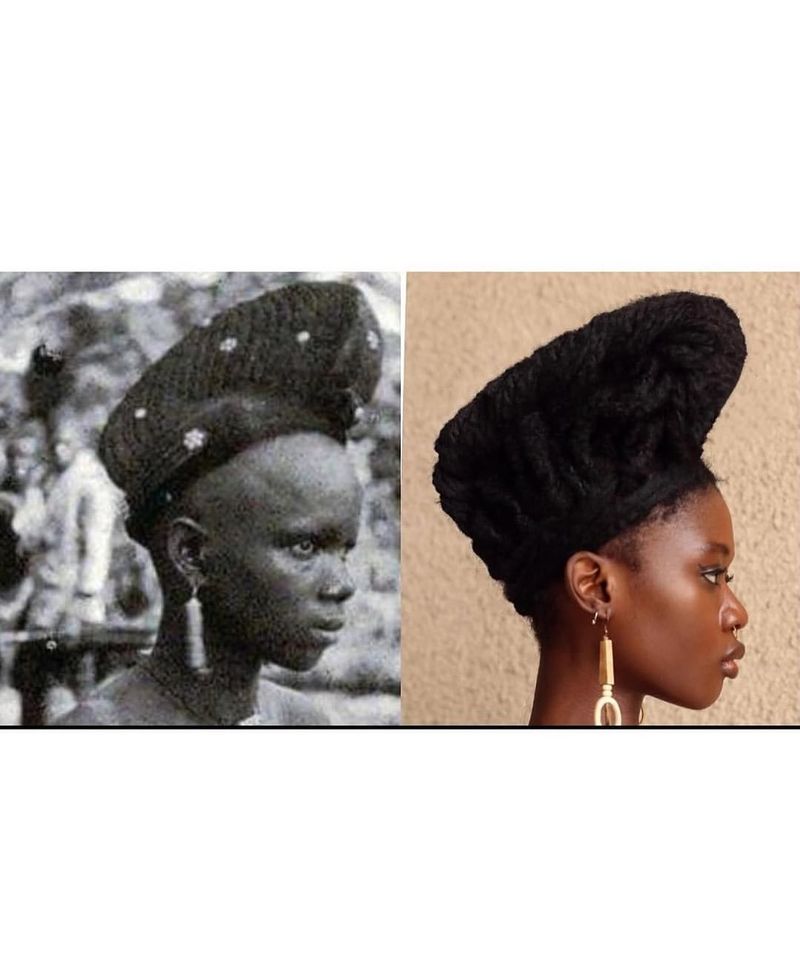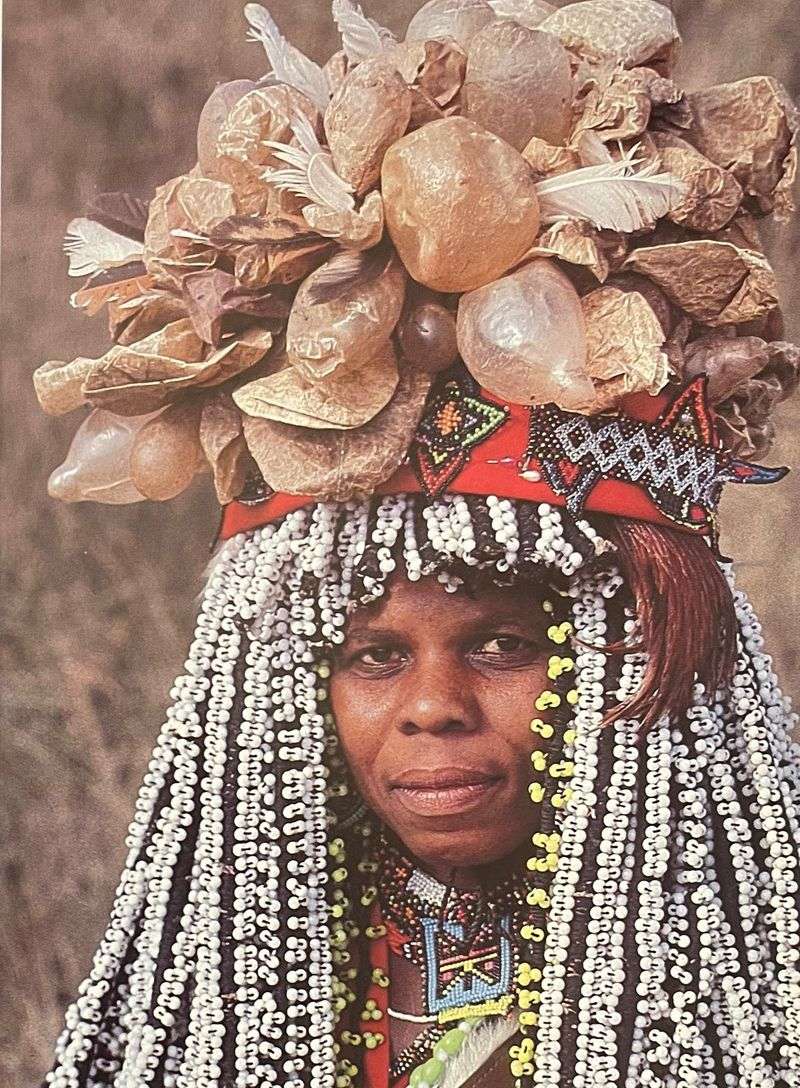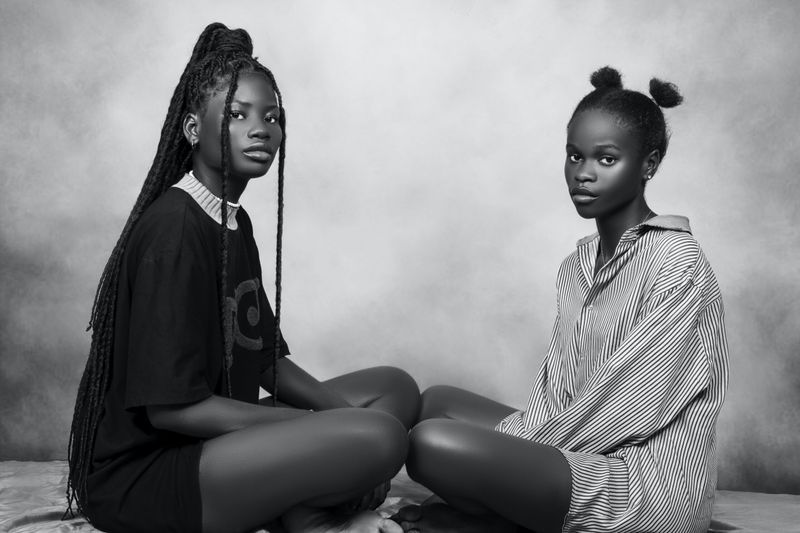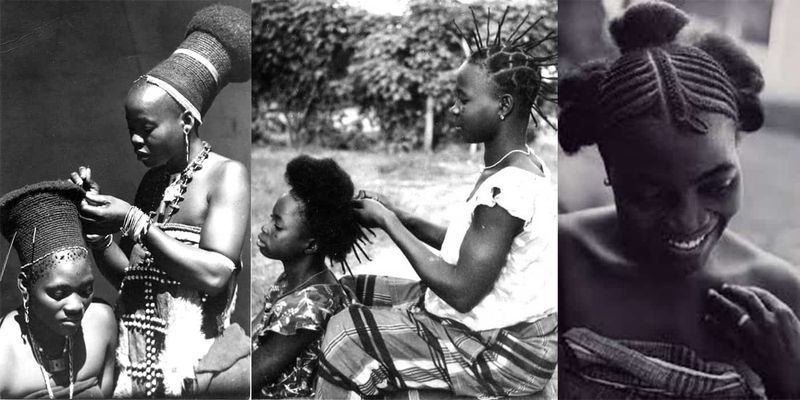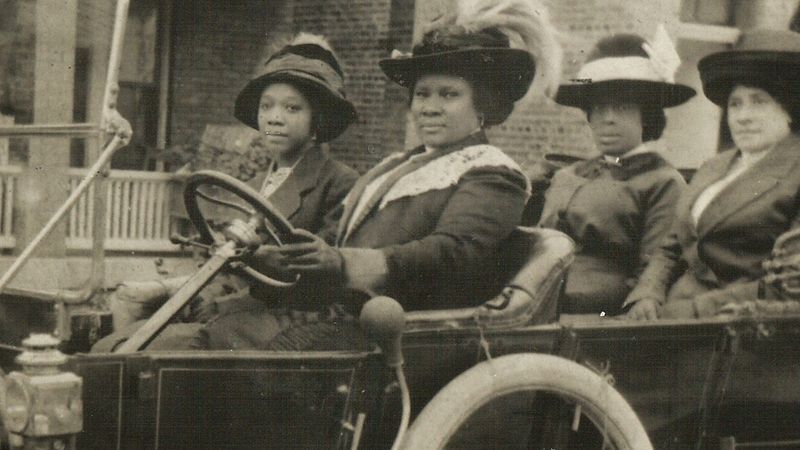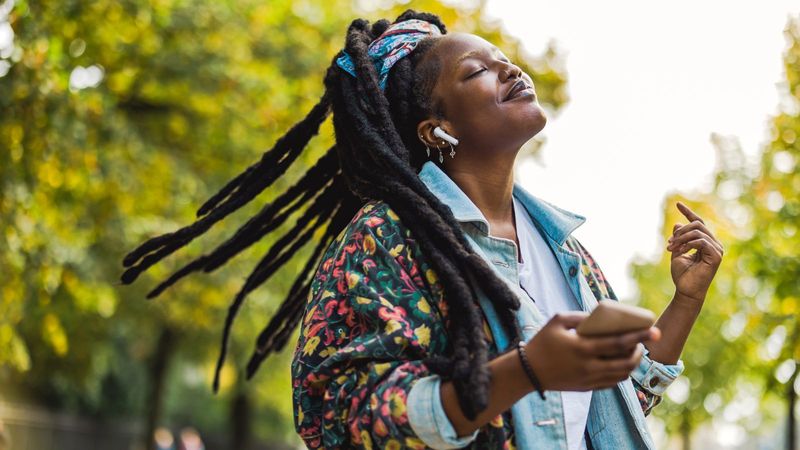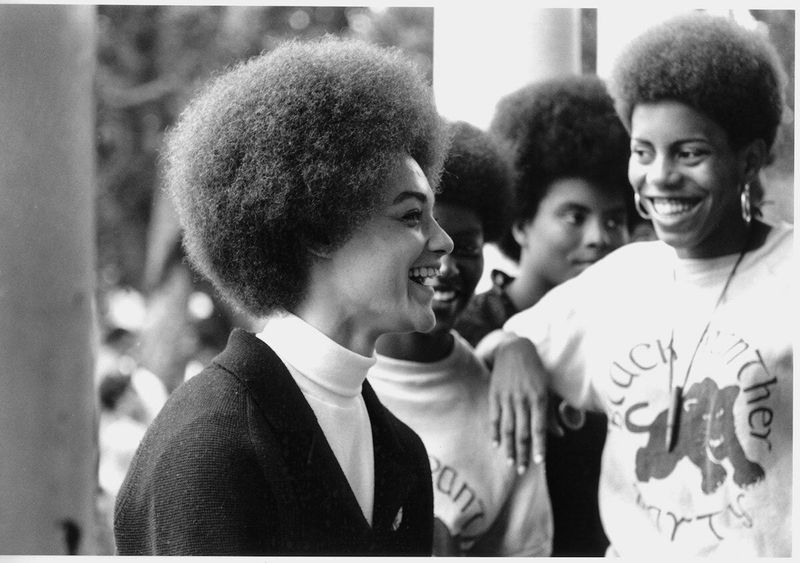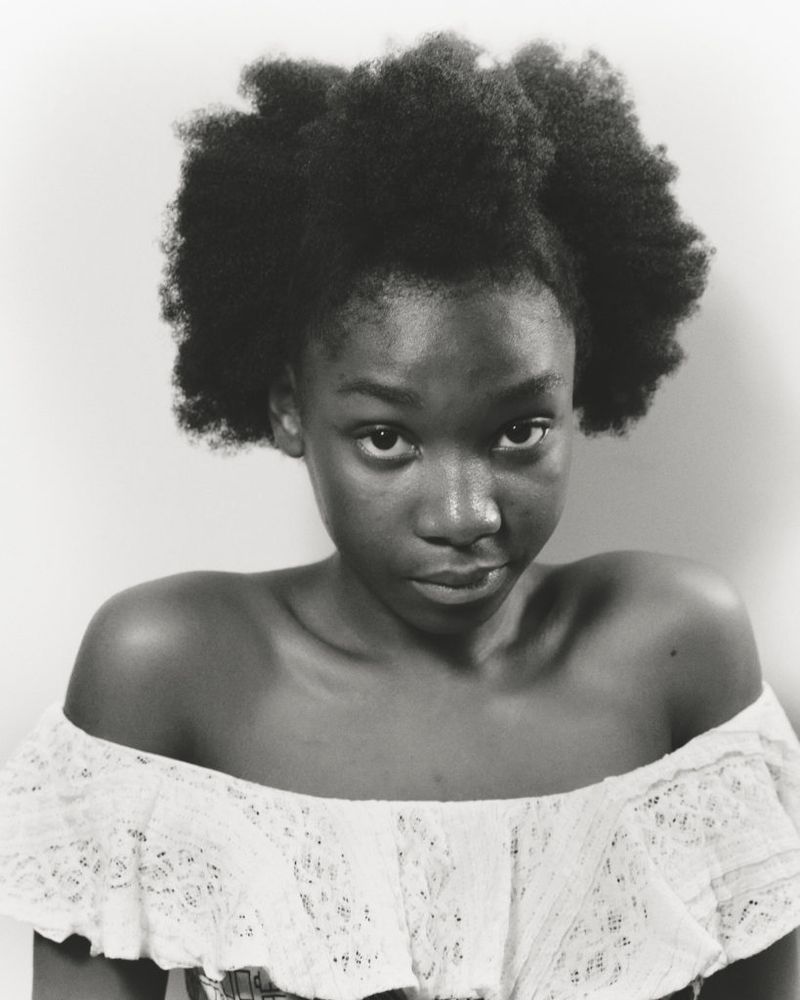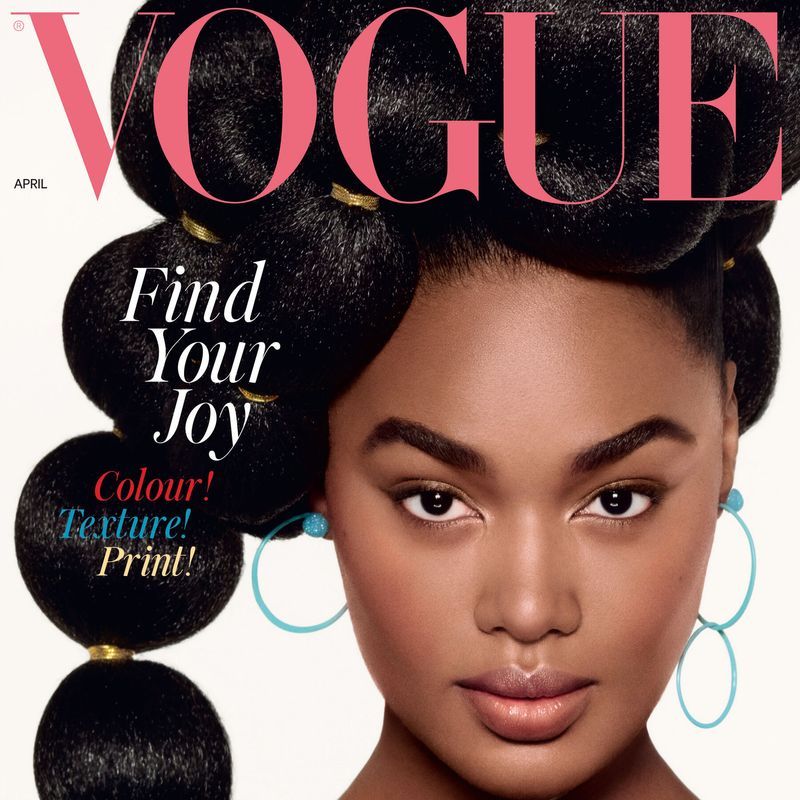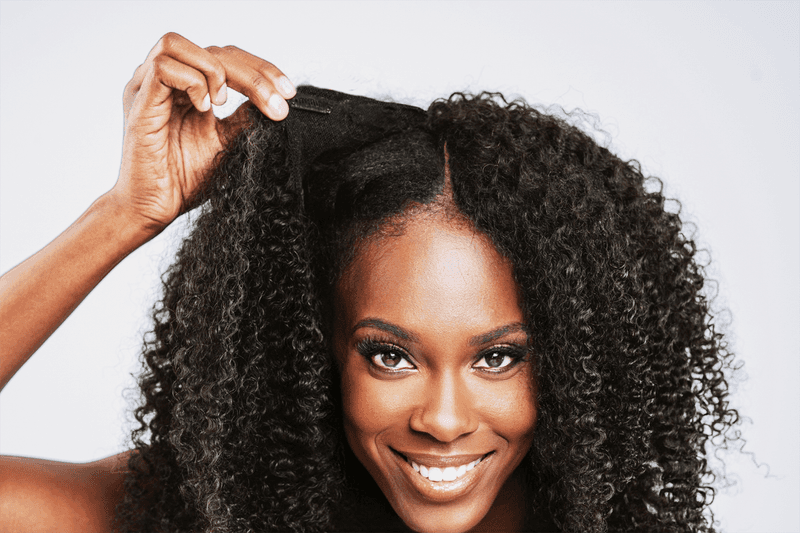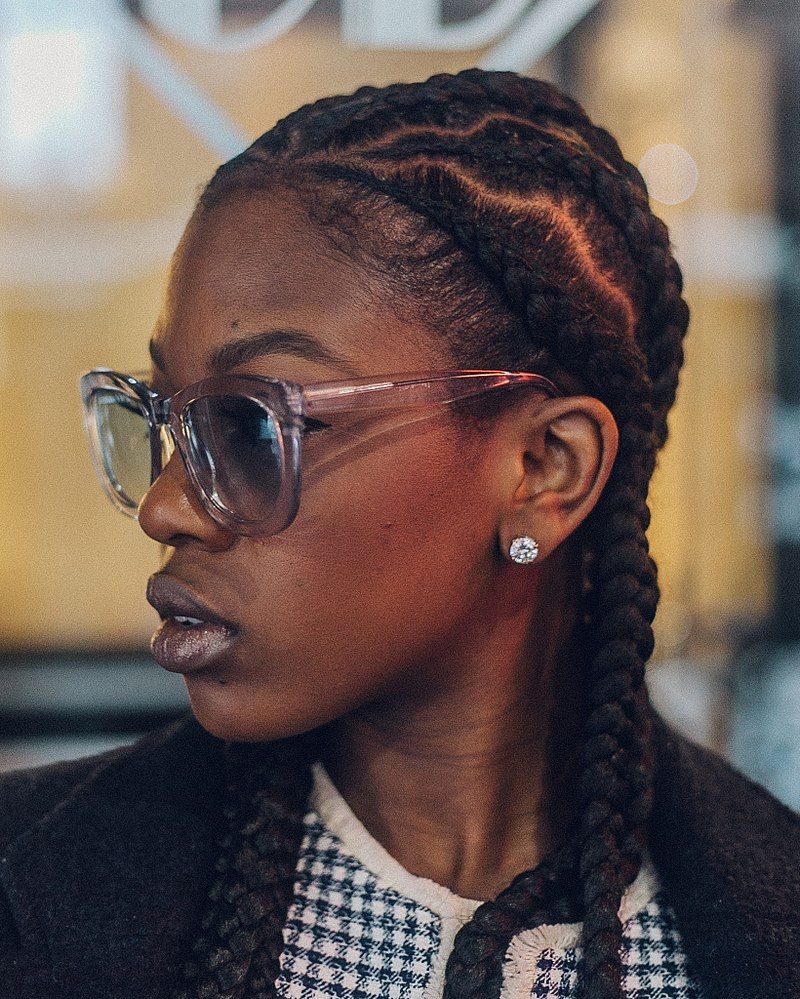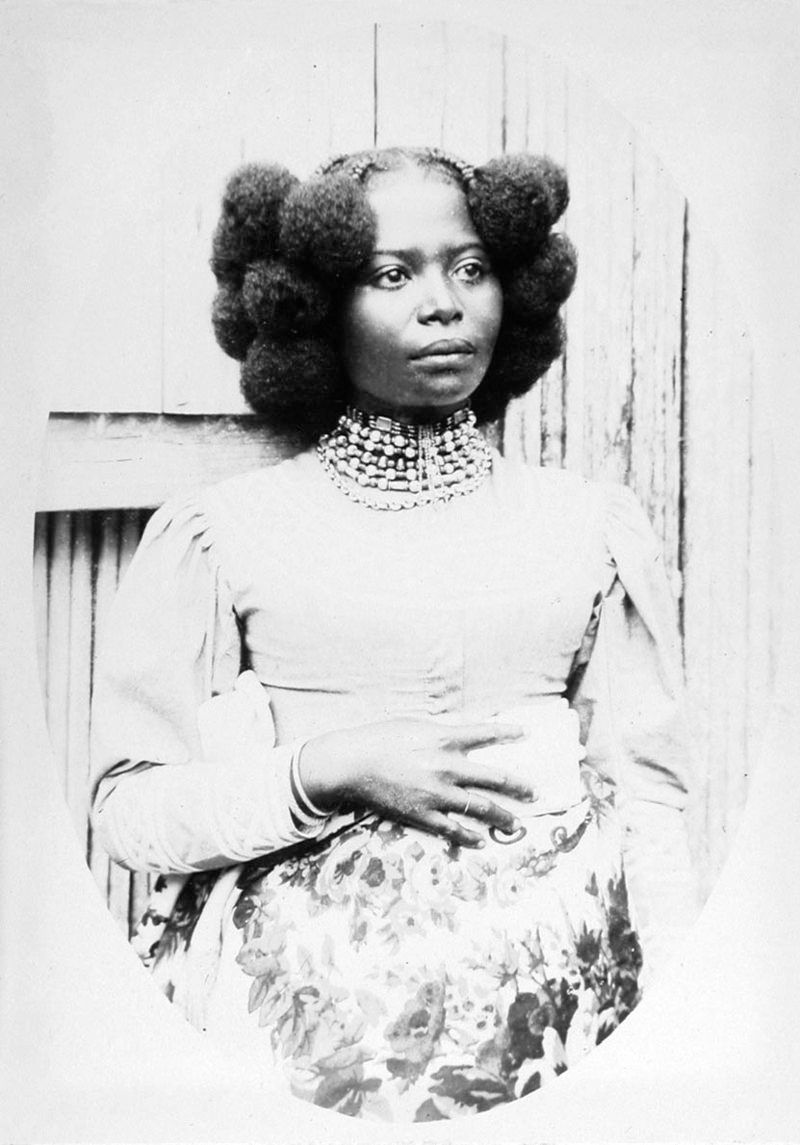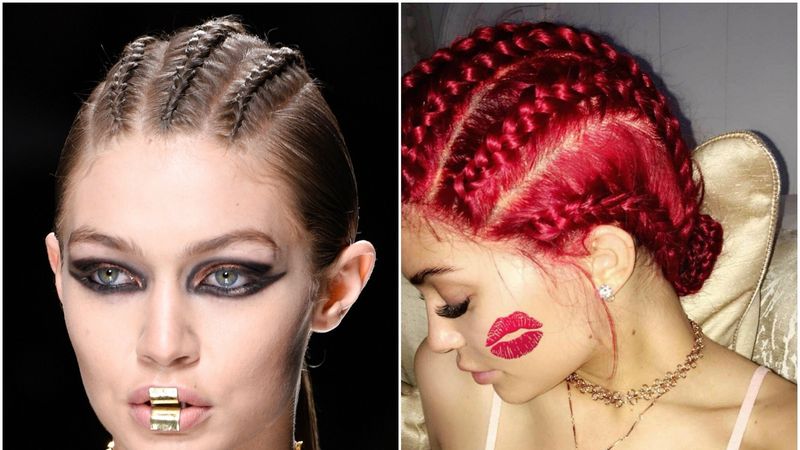Explore the rich and intricate history of African women’s hair, a profound symbol of cultural identity, resilience, and beauty across generations.
This fascinating journey uncovers 15 key facts that reveal the deep connections between hair and African women’s lives, highlighting its significance in tradition, resistance, and global influence.
1. Traditional Styling Techniques
For centuries, African women have preserved intricate braiding, twisting, and weaving techniques. These styles are not just about aesthetics but are deeply rooted in cultural heritage.
Passed down from generation to generation, these techniques reflect artistry and skill. They serve as a medium for storytelling, embodying the rich history and diversity of African communities.
The mastery of these techniques often begins in childhood, where young girls learn from elders. This practice strengthens community bonds, ensuring that cultural knowledge and traditions endure.
The intricate artistry involved in these hairstyles is a testament to the creativity of African women.
2. Cultural Identity and Symbolism
African women’s hairstyles often carry deep cultural significance, acting as symbols of tribal affiliation, social status, and personal identity. Each style can tell a story about the wearer’s community, age, marital status, and more.
In societies where oral traditions are paramount, hair serves as a visual identifier of one’s roots and lineage. The symbolism extends beyond mere appearance; it represents a connection to ancestors and the spiritual world.
Styles are carefully chosen to convey messages, celebrate events, and express individuality, making hair a powerful medium for cultural expression and identity.
3. Rituals and Ceremonial Significance
Hair care and styling are integral to various African rituals and ceremonies, marking significant life transitions and community events. From weddings to rites of passage, these practices symbolize growth, transformation, and unity.
Elders often play a central role, guiding the younger generation through these sacred rituals. The process is imbued with spiritual meaning, fostering a sense of belonging and continuity.
Each hairstyle is chosen to reflect the importance of the occasion, serving as a visual representation of the individual’s journey and community ties. These traditions highlight the enduring importance of hair in African cultural heritage.
4. Oral Histories and Storytelling
Hair traditions in Africa are not just about style; they are woven into the fabric of oral histories and storytelling. These practices are often linked to myths, legends, and historical narratives, preserving cultural knowledge and shared experiences.
As women engage in hairstyling, they pass down stories of their ancestors and community, fostering a sense of continuity and cultural pride. This exchange of stories creates a communal space where wisdom and traditions are cherished.
Hair becomes a living document of history, connecting generations and affirming the collective identity and resilience of African women.
5. Colonial Impact
The colonial era introduced new aesthetic standards that profoundly influenced African perceptions of hair. European colonizers imposed their ideals of beauty, often deeming African hair as inferior.
This led to a shift in how African women viewed their natural hair, with some adopting European styles to conform to these standards. The imposition of these standards disrupted traditional hair practices and cultural expressions.
Despite this, many African women resisted, maintaining their cultural identity through hair. The colonial impact is a reminder of the resilience of African women in preserving their heritage amidst external pressures.
6. Forced Assimilation During Slavery
During the transatlantic slave trade, African women faced the harsh reality of forced assimilation, including the pressure to adopt Eurocentric hairstyles. This coercion often resulted in a loss of cultural identity, as African hair traditions were suppressed.
Enslaved women had limited means to care for their hair, leading to altered and simplified styles. Despite these challenges, hair remained a symbol of resistance and resilience.
Women found ways to preserve elements of their heritage, using hair as a subtle form of rebellion. The legacy of this era underscores the enduring significance of hair in African women’s cultural identity.
7. Resistance and Reclamation
Throughout history, African women have used their hair as a powerful tool for resistance and cultural reclamation. By embracing natural hairstyles, they challenge imposed beauty standards and affirm their identity.
This movement celebrates the unique textures and styles inherent to African hair, rejecting the notion that conformity is necessary for acceptance. Through hair, women express their individuality and resilience, reclaiming their narrative and cultural heritage.
This act of defiance is not just personal but communal, inspiring others to embrace their roots. Hair becomes a symbol of empowerment, embodying the strength and beauty of African women.
8. The Afro and Black Pride Movements
The Afro emerged in the 1960s and 1970s as a powerful symbol of Black pride and cultural identity. This iconic hairstyle challenged mainstream beauty standards, celebrating natural hair in its full glory.
The Afro became synonymous with the civil rights movement, as African Americans embraced their heritage and fought for equality. It represented a reclaiming of identity, rejecting the notion that straight hair was superior.
The movement encouraged self-expression and unity, inspiring generations to embrace their natural beauty. The Afro remains a powerful emblem of cultural pride and resilience, resonating with African women worldwide.
9. Natural Hair Movement
The natural hair movement continues to gain momentum, advocating for the acceptance and celebration of natural African hair textures. This movement challenges mainstream beauty norms that often marginalize or stigmatize natural hair.
Women are encouraged to embrace their curls, kinks, and coils, celebrating the versatility and beauty of their natural styles. The movement fosters a sense of community, providing support and resources for those transitioning to natural hair.
It also sparks important conversations about identity, self-love, and representation. By embracing their natural hair, African women assert their autonomy and redefine beauty standards on their own terms.
10. Modern Media and Representation
In recent years, modern media has played a crucial role in reshaping global perspectives on African hair. Increased visibility in fashion, film, and social media has celebrated the diversity and beauty of natural hair.
African women are reclaiming their narratives, using media platforms to share their stories and experiences. This representation challenges stereotypes and broadens the definition of beauty, showcasing the uniqueness of African hairstyles.
Media has become a powerful tool for advocacy, inspiring individuals to embrace their authenticity. As visibility grows, so does acceptance, paving the way for more inclusive and diverse representations of beauty.
11. Innovation in Hair Care
Innovation in hair care has revolutionized the way African women care for their natural hair textures. With the development of products and techniques specifically designed for curly, coily, and kinky hair, women have more options than ever.
From moisturizing creams to protective styles, these innovations cater to the unique needs of African hair. This advancement empowers women to embrace their natural beauty and maintain healthy hair.
Salons and stylists specializing in natural hair have emerged, offering expert guidance and support. Innovation continues to shape the future of hair care, celebrating the beauty and diversity of African hair.
12. Intersection of Race and Gender
African women’s hair sits at the intersection of race and gender, serving as a focal point for broader discussions about identity and beauty standards. Hair has long been politicized, with societal pressures dictating acceptable styles and textures.
Women face unique challenges, navigating expectations around professionalism, femininity, and cultural representation. These discussions highlight the complexities of identity and the need for inclusive beauty standards.
By confronting these issues, African women challenge norms and advocate for change. Hair becomes a powerful symbol of resistance and self-expression, reflecting the nuanced experiences of race and gender in society.
13. Legal and Institutional Challenges
Legal and institutional challenges around hair discrimination have gained attention, highlighting the cultural significance of African hair. Battles in schools, workplaces, and public spaces reveal the biases that persist against natural hairstyles.
These cases underscore the need for legislation that protects individuals from discrimination based on hair texture and style. Advocacy groups work tirelessly to address these injustices, fostering awareness and change.
The fight against hair discrimination is not just about aesthetics but about respect and equality. African women’s hair is a testament to their identity, deserving protection and celebration in all spheres of life.
14. Artistic and Literary Expression
African women’s hair has long been celebrated in art, literature, and music as a symbol of strength, beauty, and resilience. Artists draw inspiration from the intricate styles and textures, using hair to convey cultural narratives and personal stories.
Literature explores themes of identity and heritage, with hair often serving as a metaphor for the African experience. These artistic expressions highlight the profound connection between hair and cultural identity.
They inspire conversations about beauty, representation, and empowerment, acknowledging the artistry and significance of African hair. Through art and literature, hair becomes a powerful medium for storytelling and celebration.
15. Global Influence and Exchange
African hair traditions have significantly influenced global fashion, inspiring contemporary styles and trends.
Designers and stylists worldwide draw from the rich tapestry of African hair techniques, celebrating the creativity and diversity of these traditions.
This exchange fosters a deeper appreciation for African culture, encouraging cross-cultural dialogue and understanding. African women have become style icons, influencing beauty standards and redefining modern aesthetics.
The global reach of African hair demonstrates its universal appeal and enduring significance. As these traditions continue to inspire, they highlight the power of cultural exchange and the timeless beauty of African hair.
